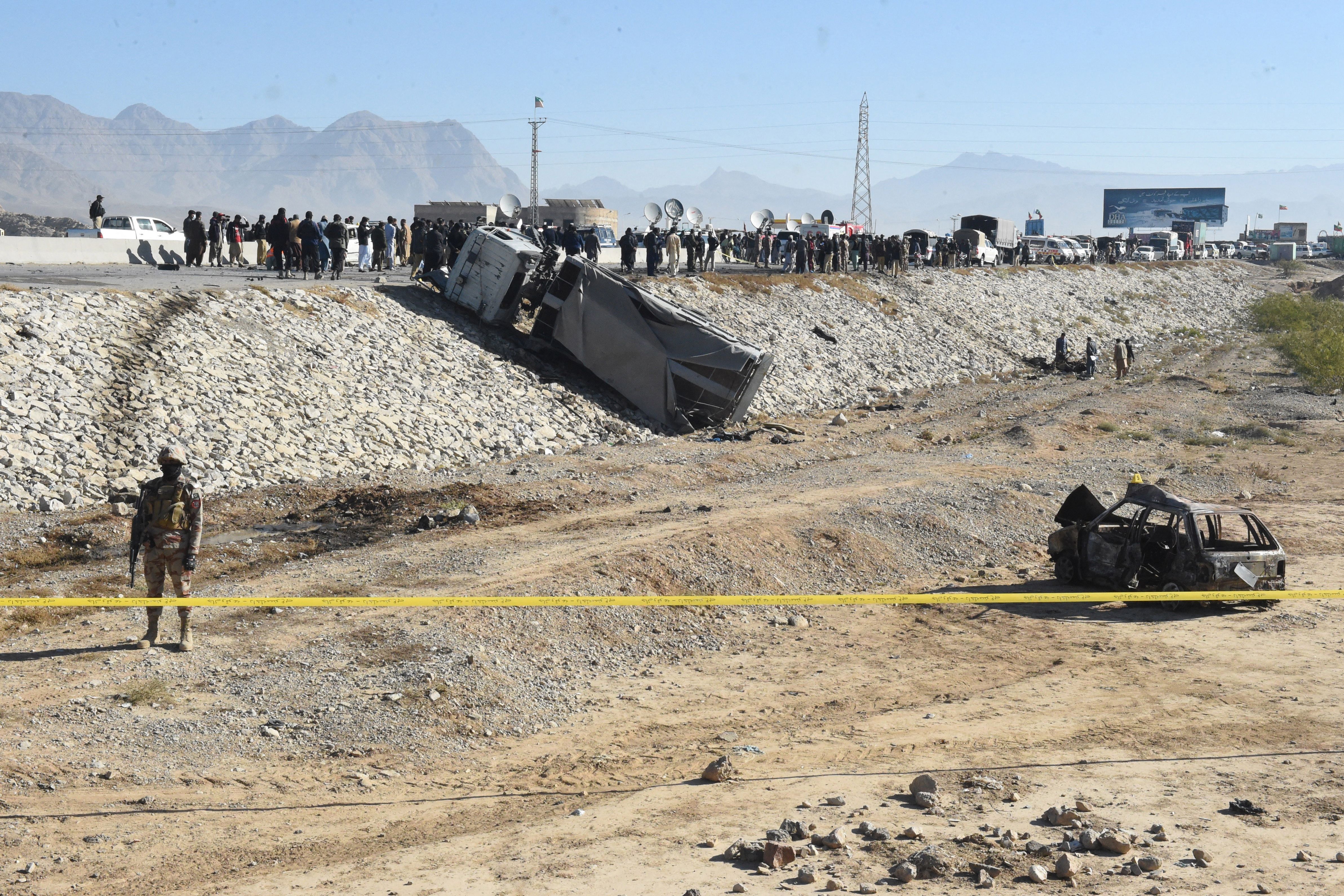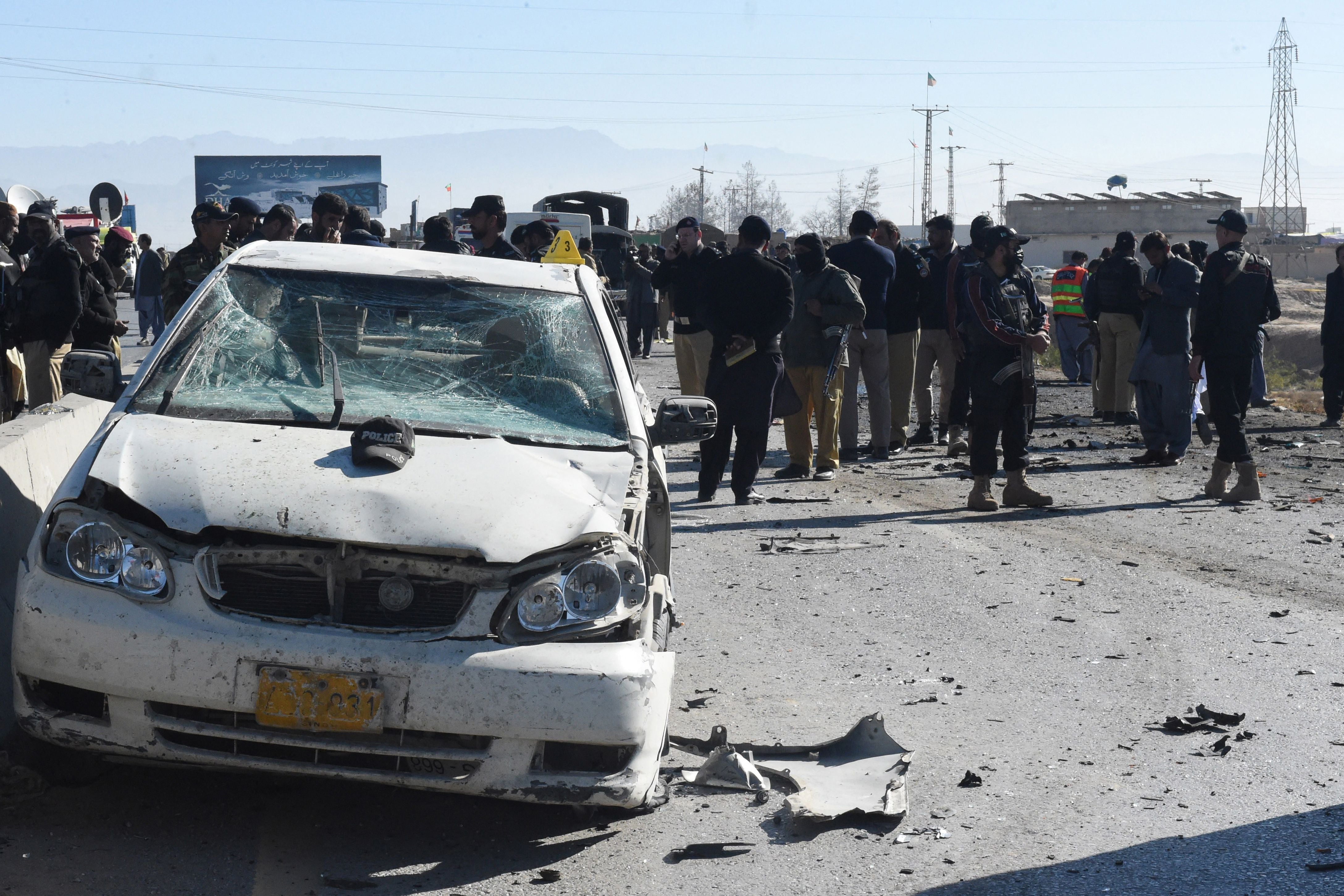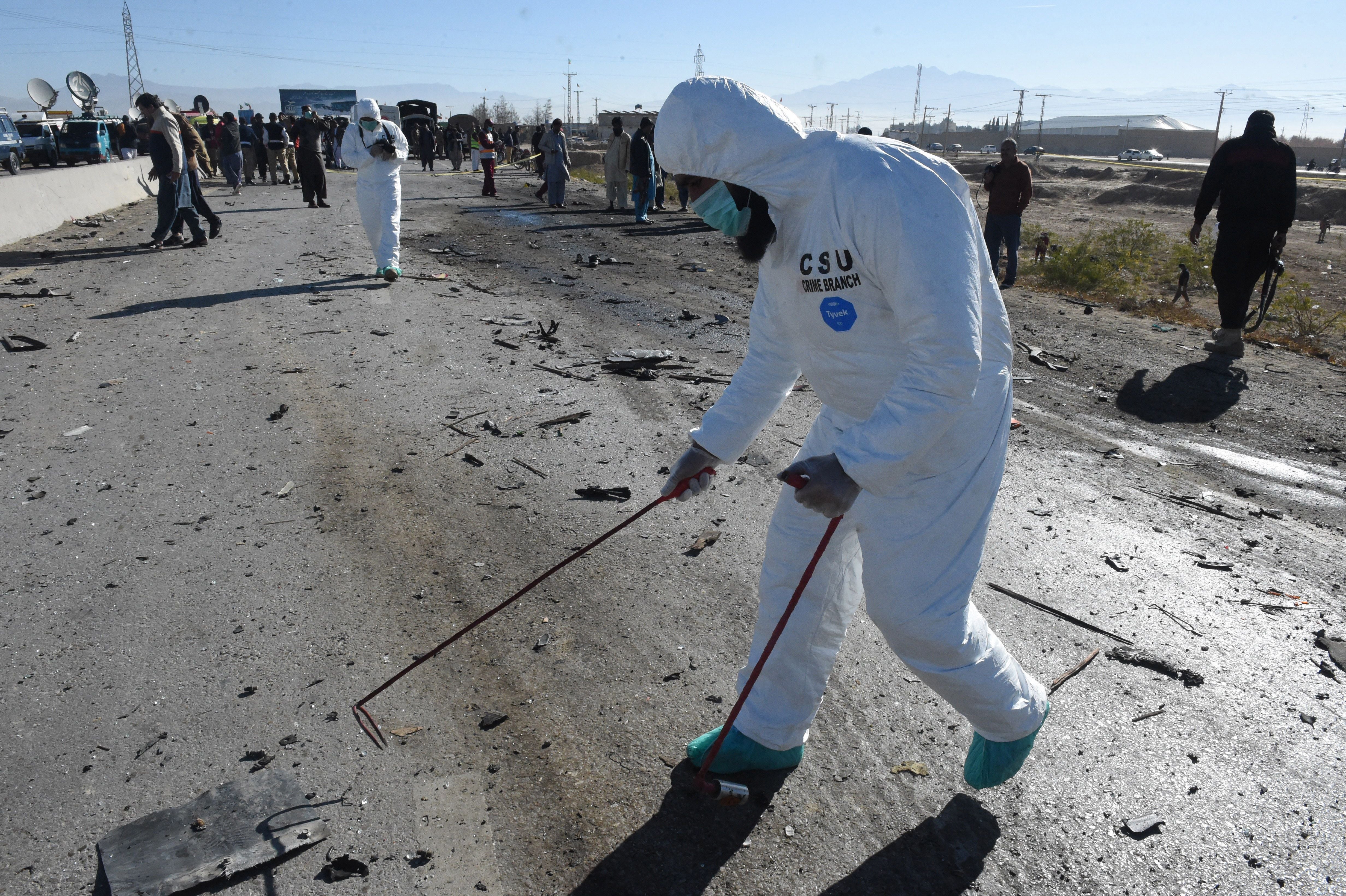Three dead and over 20 wounded as suicide bomber targets polio workers in Pakistan
Prime minister Shehbaz Sharif condemns attack and asserts country’s commitment to eradicate polio

Your support helps us to tell the story
From reproductive rights to climate change to Big Tech, The Independent is on the ground when the story is developing. Whether it's investigating the financials of Elon Musk's pro-Trump PAC or producing our latest documentary, 'The A Word', which shines a light on the American women fighting for reproductive rights, we know how important it is to parse out the facts from the messaging.
At such a critical moment in US history, we need reporters on the ground. Your donation allows us to keep sending journalists to speak to both sides of the story.
The Independent is trusted by Americans across the entire political spectrum. And unlike many other quality news outlets, we choose not to lock Americans out of our reporting and analysis with paywalls. We believe quality journalism should be available to everyone, paid for by those who can afford it.
Your support makes all the difference.A suicide bomb blast in Pakistan targeting a police patrol in the southwestern city of Quetta killed three people and left more than 20 wounded, said the officials.
The Pakistani Taliban or Tehrik-e-Taliban Pakistan (TTP) group claimed responsibility for the attack, saying it was carried out to avenge the killing of their former spokesperson, Abdul Wali.
A truck was carrying police officers to provide protection to polio workers for a nationwide vaccination drive launched this week.
Prime minister Shehbaz Sharif condemned the attack and directed authorities to initiate an investigation.
“Eliminating polio virus from the country is amongst the top priorities of the government and we will not rest until polio is completely eradicated,” he said.
The latest vaccination campaign, the sixth this year, is aimed at inoculating children under the age of five in the country.
“The explosion took place near the police truck. Due to the impact [of the blast], the vehicle — which was on its way to provide security to police workers — toppled and fell into a ditch,” Quetta deputy inspector general of police Ghulam Azfar Mahesar was quoted as saying by the Dawn newspaper.

A total of three vehicles including the police truck, a Suzuki Mehran and a Toyota Corolla were hit in the blast, killing two civilians along with a police official.
“Looking at the crime scene and given that the truck toppled, it is estimated that 25 kilograms of explosives were used [in the blast],” Mr Mahesar said.
The explosion came after the TTP ended a months-long ceasefire with the government in Islamabad this week, ordering its fighters to resume attacks across the country, where scores of deadly incidents have been attributed to the insurgent group.

Earlier on Monday, a similar attack was carried out in Balochistan province, killing a police officer and a child during the polio campaign drive.
In a statement on the same day, the outlawed group said it would end the five-month-long ceasefire after the army stepped up operations against the TTP.
Pakistan and the TTP had agreed to the ceasefire in May after talks in Afghanistan’s capital Kabul. The Pakistani Taliban are a separate group from the Afghanistan Taliban, which seized power in the country more than a year ago as the US and Nato troops concluded the final stages of their pullout.
The TTP counts the Afghanistan Taliban as its ally.
Pakistani authorities have not stopped the inoculation drive, for which workers are being given police protection, even as militants falsely dubbed such drives to be a western conspiracy aimed at sterilising children.
Pakistan has recorded 20 cases of polio since April. The country came close to eradicating the disease last year, when only a single case was reported.
Currently, Pakistan and Afghanistan are the last two countries where polio has not been eliminated.
The latest violence comes a day after Pakistan‘s new military chief, General Asim Munir, took command.
General Munir, a former spymaster, replaced General Qamar Javed Bajwa after he retired from the post, completing a six-year stint.
General Bajwa approved a series of operations against the militants in Baluchistan, northwest and elsewhere in the country during his tenure.
The latest attack also comes a day after the military claimed it killed 10 “terrorists” in a raid in Balochistan’s Hoshab district.
For nearly two decades, Balochistan has been at the centre of a low-level insurgency by separatists who want independence from the central government in Islamabad. The government said it has quelled the insurgency, but violence in the province has persisted.
Additional reporting by agencies





Join our commenting forum
Join thought-provoking conversations, follow other Independent readers and see their replies
Comments